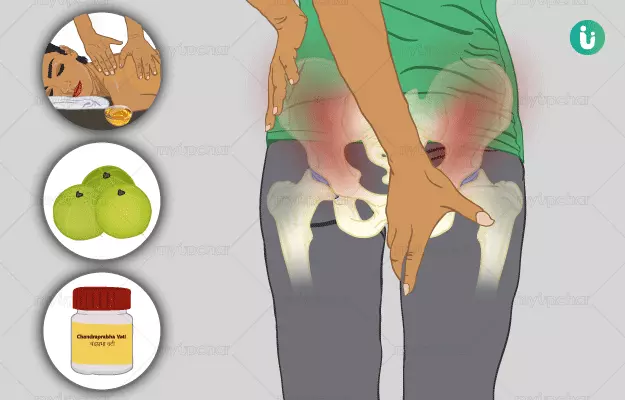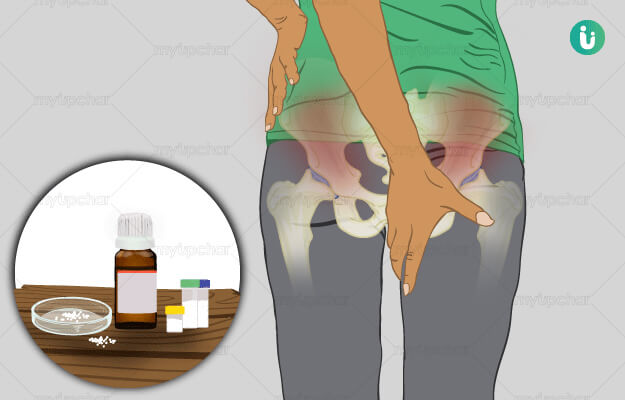iPelvis is the part of the body that lied between the lower abdomen (below navel) and legs. Pain in this region may be due to constipation or urinary tract infections. It may also indicate a full bladder or dysmenorrhea. Pelvic pain is a more common problem in women as compared to men. At least one in six women experiences this type of pain. It can be acute (sudden and unexpected) or chronic (long-standing) pain. It is termed as chronic pelvic pain if it lasts for more than six months (intermittently or continuously) and becomes intense as compared to ordinary pain. Basti (enema) technique of panchakarma (five therapies) along with swedana (sudation or sweat therapy) and local massages are the main Ayurvedic therapies used for the treatment of kukshi shula or pelvic pain. Ayurvedic herbs like nirgundi (five-leaved chaste tree), amalaki (Indian gooseberry) and eranda (castor) along with formulations such as dashamoola kwatha and abhayarishtam are helpful in treating the diseases that lead to pelvic pain.
New Year Bumper Sale @ Rs. 1
X

- हिं - हिंदी
- En - English
- Treatment
-
- Skin Issues
- Acne
- Fungal Infection
-
- Hair Problems
- Hair Growth
- Hair Dandruff
- Self-Analysis
-
- Chronic Diseases
- Diabetes
- Heart Care
- Weight Loss
- Sleep Support
- Liver Care
- Stress & Anxiety
- Our Brands
- Doctor Consultation
- Medicine A-Z
-
Health A-Z
-
- Treatments
- Home Remedies
- Herbs
- Surgery
- Lab Test
- Therapy
- First Aid
- Ayurveda
- Homeopathy
-
- Yoga And Fitness
- Fitness
- Yoga
- Weight Loss
- Weight Gain
-
- Other Topics
- Baby Names
- Beauty
- Healthy Foods
- Tips
- Health News
- Pet Health
- Men Health
- Medical Cannabis
- Login / Sign Up







































